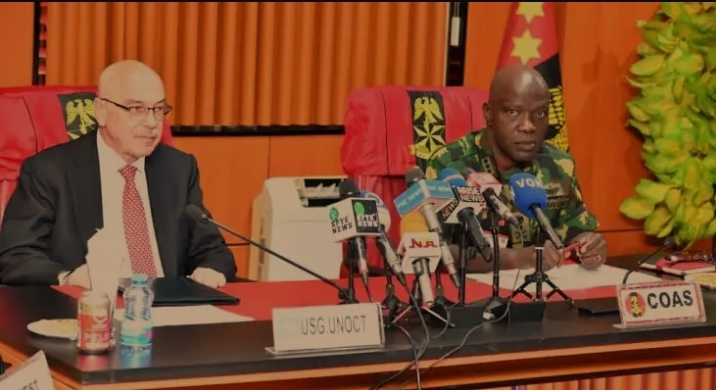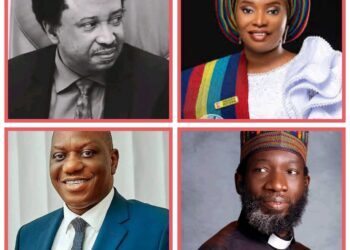The Nigerian Army (NA) has taken a significant step towards bolstering its counter-terrorism capabilities by forging a crucial alliance with the United Nations Office for Counter Terrorism (UNOCT).
This landmark partnership signifies Nigeria’s commitment to combatting terrorism and violent extremism not only at a national level but also within the broader international context.
In a recent meeting held at the Army Headquarters in Abuja, Lieutenant General Taoreed Lagbaja, Chief of Army Staff (COAS) of the Nigerian Army, extended a warm welcome to UNOCT and expressed the NA’s eagerness to collaborate effectively.
This collaboration holds immense importance as Nigeria assumes a pivotal role in regional counter-terrorism endeavors.
Lieutenant General Lagbaja underscored the Nigerian Army’s remarkable achievements in neutralizing a substantial number of surrendered Boko Haram terrorists.
These successes were attained through a combination of kinetic and non-kinetic operations, showcasing the NA’s multifaceted approach to counter-terrorism.
Furthermore, the NA has been diligently conducting disarmament and demobilization procedures in line with globally recognized best practices.
Lieutenant General Lagbaja highlighted that UNOCT’s visit would significantly contribute to enhancing global, regional, and national responses to terrorism, fostering crucial partnerships, and building capacity.
During the meeting, Mr. Vladimir Voronkov, Under-Secretary General of UNOCT, reaffirmed the office’s unwavering dedication to strengthening its partnership with the Nigerian Army.
Mr. Voronkov stressed the imperative need for intensified multilateral collaboration to address the continually evolving terrorism threat in Africa.
In a separate development on the same day, Lieutenant General Lagbaja welcomed a delegation of 27 accredited Defence Attachés and Advisers (DA) to Nigeria.
Major General Emmanuel Undiandeye, Chief of Defence Intelligence, led this delegation, which visited the Army Headquarters.
Lieutenant General Lagbaja acknowledged the fruitful cooperation between the Nigerian Army and the armed forces of the represented nations, encompassing training, operations, and defense procurement.
He expressed a keen desire for expanded engagements and assured the DAs of a conducive environment for interaction, idea exchange, and shared experiences to nurture and enhance the existing bilateral relations between the Nigerian Army and each represented nation.
Major General Emmanuel Undiandeye, Chief of Defence Intelligence, emphasized the significance of this interaction between the DAs and the COAS.
It presented a unique opportunity to address concerns and explore other areas of mutual interest.
Colonel Legha Romi, the Doyen and Defence Attaché from India, conveyed the DAs’ gratitude to the COAS for the opportunity to engage and requested further interactions to facilitate mutual benefits and shared experiences between Nigeria and the respective countries represented by the DAs.
The meeting among the COAS, CDI, and the DAs featured an interactive session, facilitating productive discussions and the exchange of valuable insights.
This extraordinary partnership between the Nigerian Army and UNOCT, coupled with the ongoing engagements with Defence Attachés from various nations, serves as a testament to Nigeria’s unwavering dedication to global counter-terrorism efforts.
It exemplifies Nigeria’s commitment to establishing enduring bilateral relationships that not only bolster security measures but also promote peace and stability on a global scale.









